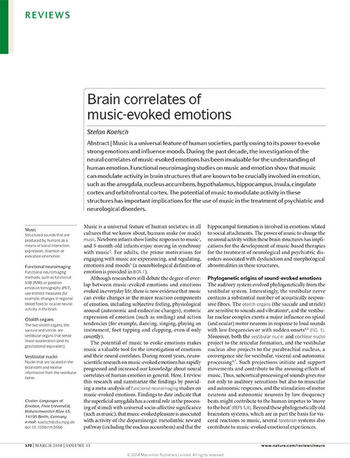New Publication: Brain correlates of music-evoked emotions
News from Feb 24, 2014
Bibliographical Note:
Koelsch, S. (2014): Brain correlates of music-evoked emotions, Nature Reviews Neuroscience15, 170–180, doi:10.1038/nrn3666
Abstract:
Music is a universal feature of human societies, partly owing to its power to evoke strong emotions and influence moods. During the past decade, the investigation of the neural correlates of music-evoked emotions has been invaluable for the understanding of human emotion. Functional neuroimaging studies on music and emotion show that music can modulate activity in brain structures that are known to be crucially involved in emotion, such as the amygdala, nucleus accumbens, hypothalamus, hippocampus, insula, cingulate cortex and orbitofrontal cortex. The potential of music to modulate activity in these structures has important implications for the use of music in the treatment of psychiatric and neurological disorders.
